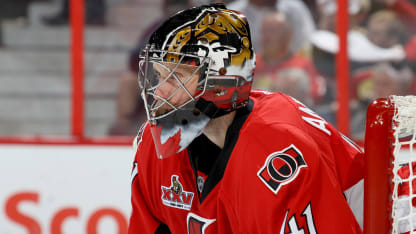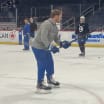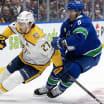Now, because of Anderson and his mental fortitude, the Senators and Penguins will play Game 7 in Pittsburgh on Thursday (8 p.m. ET; NBCSN, CBC, TVA Sports). The winner goes to the Stanley Cup Final to play the Nashville Predators.
"In the case of a guy like [Anderson], he's had a lot of emotional issues over the past year and it's not related to on ice," Corsi said, referring to Anderson's wife, Nicholle, who was diagnosed with throat cancer in October. "So when people are looking outside and thinking, 'Oh my God, it's 2-1 with five minutes to go,' and you can taste that bile in your mouth because you're so tense, it's not like that with him. When you talk about [Anderson's] life issues that he's gone through, he's had the emotional preparation to deal with adversity."
Corsi said he doesn't typically talk publicly about his coaching philosophy with goaltenders, but he did for this story because it helped explain Anderson and his bounce-back performance.
For starters, Corsi said Anderson proved he has the ability to "function under the heightened value of the game," which he said is crucial to a goalie having success in May and June.
The key is strong preparation.
"You talk to Broadway stars and you talk to people who are firefighters, what I've learned is there is a heightened tension," Corsi said. "And I call it that, not pressure, because pressure for me is the realization that you're not prepared for the situation. That's pressure. And if you let that creep into your psyche, you will most likely fail. This is like anything else, like a doctor going into surgery or a mountain climber climbing the mountain. It's about trusting the foundation of your work so when a situation is different you can trust that you will be able to respond because of your preparation. Translate that to a goaltender, well, it's the same thing."


















